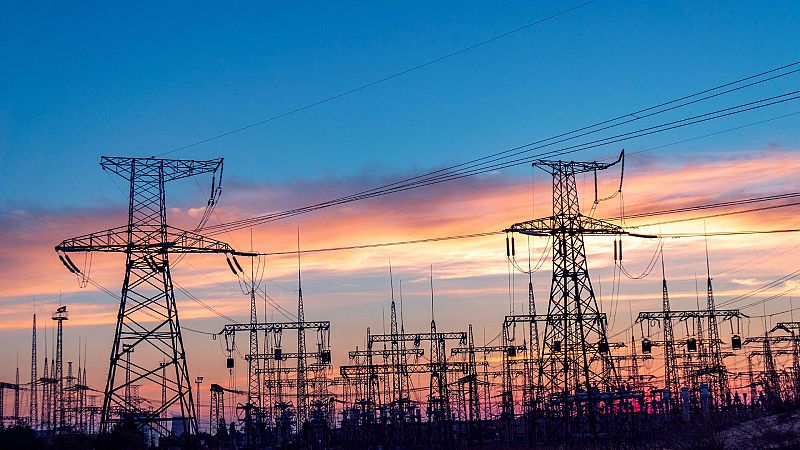
The massive power outage across Spain, Portugal, and parts of France has been described as a "wake-up call" for policymakers to invest more in energy grids.
Investigations are underway to discover the cause of a massive energy blackout that started on Monday and brought trains and traffic to a standstill, and stopped bank machines and mobile phones from working.
"I think it should be, in a way, a wake-up call for policymakers and regulators to remind everybody also in broader society that electricity is the lifeblood of a well-functioning modern society," Kristian Ruby, secretary general of Eurelectric, a federation representing Europe’s electric industry, told Euronews Next.
The cause of the outage is unclear, but a cyberattack has largely been ruled out by the authorities.
Portugal's grid operator on Monday initially blamed a "rare atmospheric phenomenon" that caused "anomalous oscillations" in high-voltage power lines in Spain.
Meanwhile, Spanish grid operator Red Electrica said late on Monday that there was a"strong oscillation in the power flow, which triggered a very significant loss of generation".
Separately from this particular incident, "we are in the midst of the most ambitious, fascinating and necessary transformation of our energy system and specifically our electricity system in world history," Ruby said.
Europe is deploying massive amounts of renewable energy into the grids, such as solar and wind, but Ruby said investment into the grids "is not happening at the pace that’s needed and that’s something that needs to change” to create an energy system that is "reliable".
"We need to basically develop the grid infrastructure of our system at the same pace as we're developing the generation side," he said.
The world must add or replace 80 million km of grids by 2040 - equal to all grids globally today - to meet national climate targets and support energy security, the International Energy Agency (IEA) said in a 2023 report.
Spain and Portugal are green energy leaders with an abundance of sun and wind power. Last year, Spain recorded that 56 per cent of all energy used was renewable.
Why grids need balance
But the grids, which send electricity from power plants to homes and businesses, need to upgrade their distribution systems to ensure the grids are balanced.
Balancing a grid is crucial as it should not have too much or too little generation; otherwise, it will shut down automatically if the frequency is not in its usual range, which is often the reason for power cuts.
That frequency corresponds to the rotational speed of generating equipment like gas and nuclear turbines.
Another issue raised in the wake of Monday’s incident is whether there should be interconnectors on the grid, which connect large areas and countries.
Ruby argued that there should be more interconnectors because it puts less pressure on the overall system and allows other regions or countries to vary the use of different types of energy from places that have different weather patterns.
To interconnect grids or not?
"A more interconnected system with more grids is definitely a key element in avoiding such incidents in the future," he said.
However, in the past, interconnectors have themselves been the reason for power outages. In 2005, a German power overload caused blackouts as far as Portugal.
“As national grids and essential services become increasingly interconnected and digitally controlled, the risk of a single event triggering widespread cascading effects grows significantly,” said Tony Hasek, CEO and co-founder of Goldilock, a cybersecurity company specialising in critical infrastructure protection.
But it is not just grid balancing that is to blame. There is increased stress on power grids not only because of renewable energies and the lack of investment in grids, but also because of extreme weather and increasing geopolitical tensions that can lead to attacks on infrastructure.
"Whether this incident ultimately turns out to be a cyberattack or not, it highlights the critical need for proactive protection strategies," he told Euronews Next in a statement.
"In an environment where even minor faults can have major consequences, organisations must have the ability to isolate and contain threats swiftly before they can spread across interconnected systems," he added.
As energy returns to Spain and Portugal, it must be noted that Europe has "quite a good power system," said Ruby, who added that the continent has invested more in its grids than the United States, and as renewables are used much more than in other countries, Europe has a more decentralised energy system.
"Now is the time, while continuing that rollout of the future sources of electricity generation, to also say let's make sure that we know exactly how we back the system up… and make sure that the electricity can flow reliably to the customers," Ruby said.







